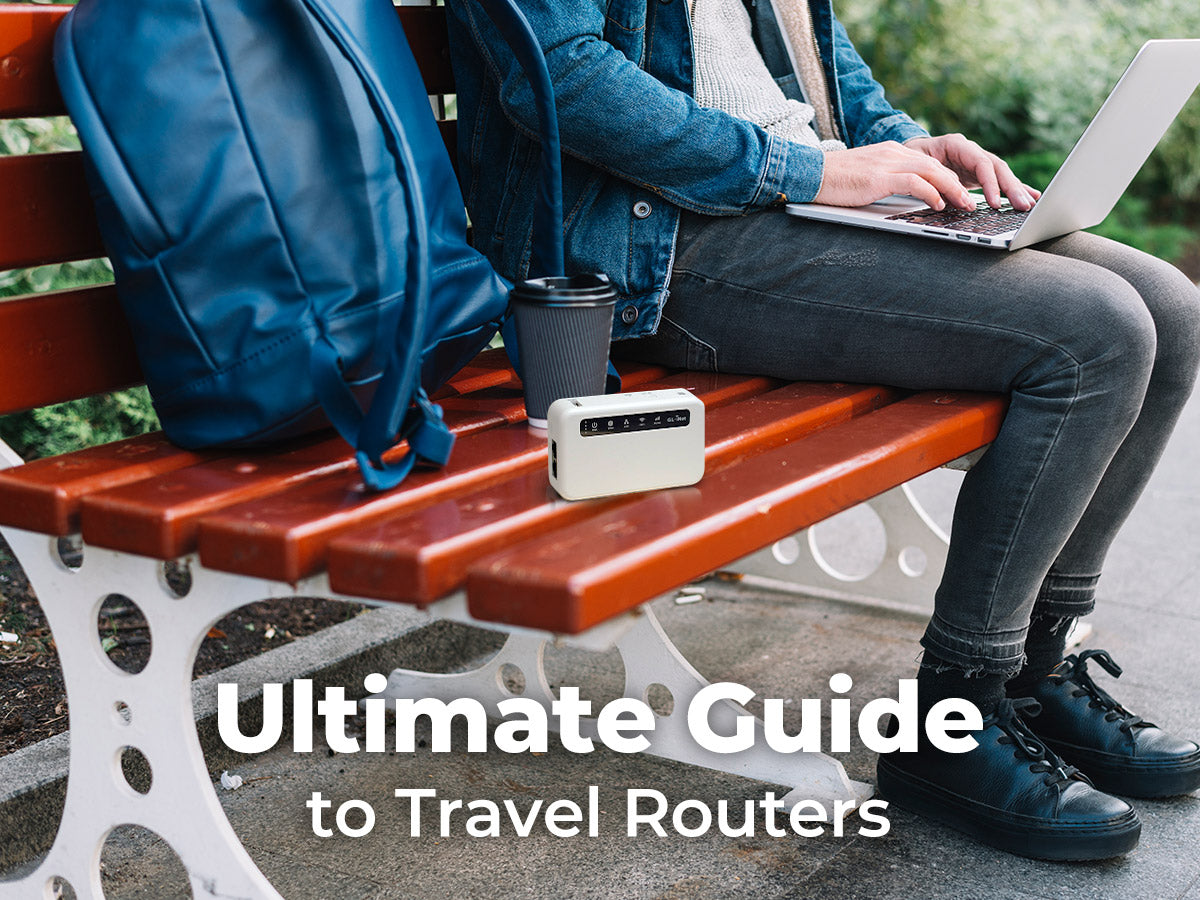Ultimate Guide to Travel Routers: Enhancing Your On-the-Go Internet Experience

Enhance your travel experience with the power of connectivity! Dive into the world of travel routers—an essential companion for modern-day explorers seeking secure, seamless internet access on the go.
What is a Travel Router?
A travel router is a compact wireless router designed for mobility, allowing users to establish a secure and private Wi-Fi network using a wired Internet connection commonly found in hotels or public networks. This device offers enhanced security features, the ability to connect multiple devices, and often includes additional functionality such as file sharing and media streaming among connected devices on the go.
What is a Travel Router Used For?
A travel router is utilized to establish a secure, private Wi-Fi network from a public or hotel Ethernet connection, ensuring multiple devices have safe Internet access. It often includes VPN support for enhanced security, allowing users to encrypt their online activity and bypass geo-restrictions, providing both protection against threats on public networks and privacy for sensitive data while traveling.
Do Travel Routers Need a SIM Card?
The Eiotclub router distinguishes itself in the travel router market with its innovative design that includes a pre-installed SIM card. This built-in SIM comes with an ample 24GB data allowance valid for a full 360 days across both Europe and America, sparing users the hassle of procuring a separate SIM for their internet needs. This feature alone sets the Eiotclub router apart as a top pick for travelers seeking effortless connectivity.
Best Portable WiFi Router for Travel
In the quest for the ideal portable WiFi router, it’s crucial to focus on key attributes such as swift 4G LTE speeds, enduring battery performance, and the ability to connect several devices simultaneously. Leading the pack are models like the TP-Link M7350 and Huawei E5788u-96a, celebrated for their rapid connectivity and extensive network reach. Additionally, the Eiotclub router GL-XE300 emerges as an exceptional option, providing comparable advantages for travelers in need of dependable internet access while exploring new destinations.
What is the Difference Between a Router and a Travel Router?
The primary difference between a standard router and a travel router lies in their intended use cases, design philosophies, and functional capabilities.
A standard router is typically larger, designed for stationary use within homes or offices. It serves as a central hub to distribute an internet connection to various devices via Ethernet or WiFi, often offering advanced features such as multiple LAN ports, enhanced security protocols, higher bandwidth capacities, and extended wireless coverage suitable for a stable and permanent network setup.
In contrast, a travel router is a compact, lightweight device engineered for mobility and convenience. Optimized for on-the-go usage, it provides an internet connection for travelers by connecting to multiple types of upstream sources, such as a hotel’s wired connection, a public WiFi, or a mobile data network via an integrated or external SIM card. A travel router typically prioritizes ease of use, a smaller form factor, lower power consumption, and oftentimes includes a built-in battery, making it more adaptable and versatile for various travel scenarios but with some trade-offs in speed and range compared to its standard counterpart.
What is the Point of a Travel Router?
The point of a travel router is multifaceted, addressing various needs that arise when connecting to the internet away from home or office environments. Its advantages make it an essential gadget for frequent travelers. Here are the key benefits and purposes of using a travel router:
Secure Connection: Public Wi-Fi networks, commonly found in hotels, airports, and cafes, can be insecure and vulnerable to hacking. A travel router allows users to set up their own private Wi-Fi network with robust encryption, offering a secure way to access the internet and protect sensitive information.
Simplified Connectivity: Travel routers can connect multiple devices to the internet with a single login credential. This is particularly useful in situations where a hotel or public Wi-Fi network limits connections to a certain number of devices.
Portability: Designed to be lightweight and compact, travel routers easily fit into luggage or backpacks, making them ideal for use on the go.
Versatility in Internet Access: Many travel routers are equipped to tap into various types of internet sources. They can convert a wired connection into a Wi-Fi signal, amplify weak Wi-Fi signals, or even use a cellular data connection if they have a SIM card slot. This flexibility ensures that you remain connected across different locations and situations.
Network Sharing: Beyond sharing an internet connection, travel routers can facilitate the sharing of files and media among connected devices on the same network. This feature is useful for groups needing to access common resources during travel.
Battery Backup: Some travel routers come with built-in batteries. These can serve as a temporary power source for the router itself or act as a charging station for mobile devices in a pinch.
Cost-Effective Connectivity: For international travelers, some travel routers with SIM card slots allow the use of local data plans, which can be more cost-effective than roaming services or purchasing multiple local SIM cards for each device.
In essence, a travel router is designed to offer a blend of security, convenience, portability, and connectivity for internet users on the move, making it an invaluable tool for both leisure and business travelers alike.
How Do Travel Routers Work?
The GL-XE300 travel router operates by creating a local WiFi network connecting to the internet via wired Ethernet or cellular data. This versatile connectivity ensures seamless internet access, whether in a hotel room with Ethernet access or out and about relying on cellular data. Its user-friendly setup and compact design make it an ideal solution for staying connected on the go.
In conclusion, a travel router is an essential gadget for business travelers aged 25 and above, enhancing on-the-go internet experiences with its compact size, versatile functionality, and advanced features. Invest in a travel router today to elevate your connectivity and productivity on the road!












